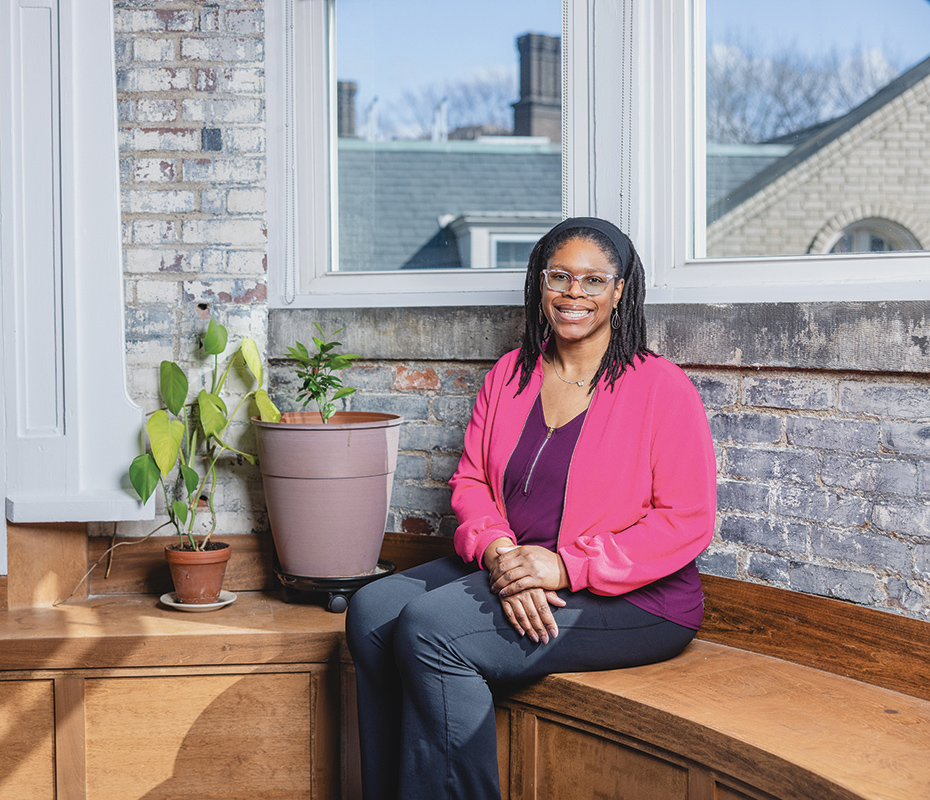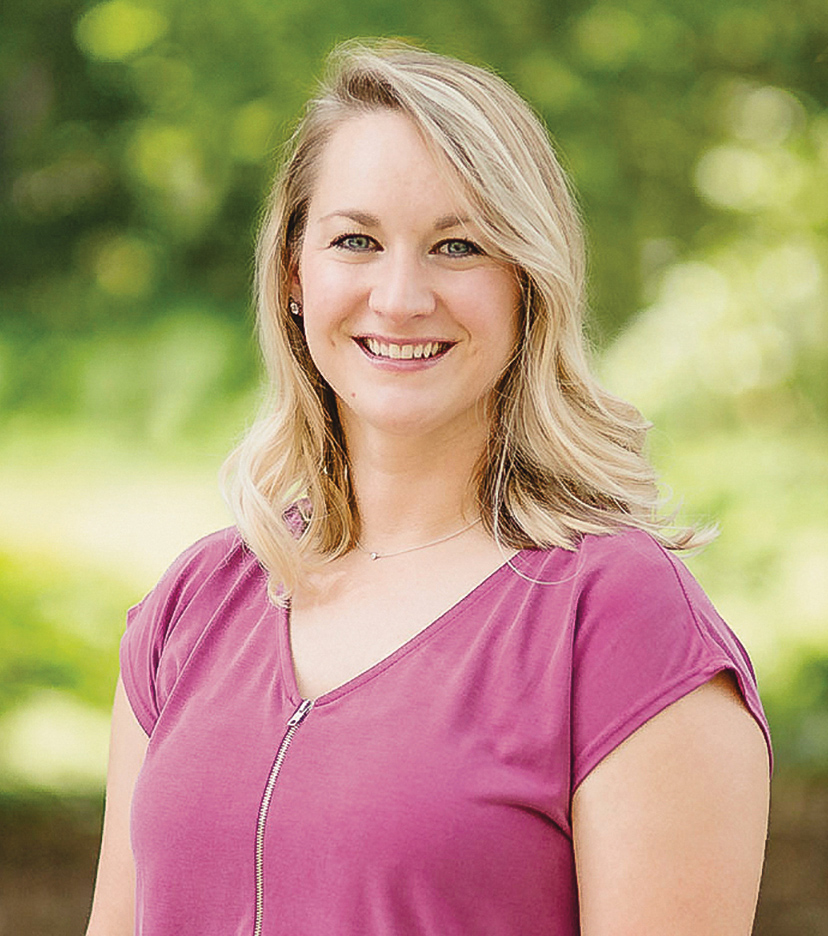lens
Rebuilding Lives
A Case Western Reserve University researcher is analyzing a successful mental-health program. Could the findings have broader implications?
 Photo by Matt ShifflerLakecia Wild came to Magnolia Clubhouse as a client and is now on its board of directors.
Photo by Matt ShifflerLakecia Wild came to Magnolia Clubhouse as a client and is now on its board of directors.Lakecia Wild hit rock bottom 10 years ago, struggling with post-traumatic stress disorder and other mental-health challenges.
Then she discovered Magnolia Clubhouse in Cleveland's University Circle, which helps people with serious mental illness reclaim their lives through a combination of employment, housing, education and access to healthcare services—all in a nurturing, collaborative environment.
"It's hard to put into words what Magnolia Clubhouse has done for me," Wild said. "Not to be clichéd, but it saved my life."
 Jessica Wojtalik
Jessica Wojtalik
Now, a Case Western Reserve University researcher has partnered with Magnolia to research why the organization and others like it work so well. With hundreds of similar "clubhouses" across the globe providing a community-based, client-focused approach to mental health, the implications are far-reaching.
Jessica Wojtalik, PhD, an assistant professor at the Jack, Joseph and Morton Mandel School of Applied Social Sciences, co-leads the collaboration. Her work includes a detailed evidence-based review of Magnolia to better understand and improve outcomes for those with serious mental illness, including schizophrenia.
She already knows a key element of the success: Staff and members work side-by-side to run the organization with respect and appreciation.
"The Clubhouse Model works because it removes power imbalances and creates an intentional community of support," Wojtalik said.
She has written several studies on interventions for serious mental illness. Last year, she published a paper in the Psychiatric Rehabilitation Journal examining a way to evaluate the effectiveness of the Clubhouse Model. She co-created a workshop for a clubhouse conference in Michigan, offering a roadmap for partnerships between universities and clubhouses to deepen research efforts.
She also plans to conduct pilot studies examining the cognitive and neurobiological effects of clubhouse participation. This work will include reviewing MRIs for dozens of Magnolia members to assess whether their brains react differently based on participation in the Clubhouse Model compared to the brains of people who receive services in other mental health programs.
Clubhouses provide "an extremely enriched environment in which the clients are valued as people," Wojtalik said. "This is the part that has possibilities to reshape mental-health practices, because current approaches tend to be deficit based, focused on diagnosis and don't take into account the whole person that goes beyond the illness."
For Magnolia Clubhouse members, the model is already a proven method.
"Doctors once told me I shouldn't work, that I was too sick," said Wild, who now works at a mental-health and wellness center and is on the Magnolia board of directors. "But I took a leap, and I've found success—more than I could've ever imagined."
"We see the Clubhouse Model working every day. Jessica Wojtalik helps us to better scientifically understand the details to promote the work and improve it."
— Lori D'Angelo, PhD (GRS '92, '95, psychology), executive director of Magnolia Clubhouse





